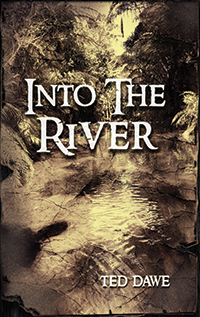
Marred by controversy, a Young Adult novel by New Zealand author Ted Dawe, will finally be released to North American bookshelves and tablets on June 14. The award-winning novel follows the story of Te Arepa Santos, holding onto his Maori heritage at a posh Auckland boarding school where bullying is commonplace.
Into the River won the New Zealand Post Children’s Book award and is aimed at a teenage, largely male audience. Dawe said this audience was hard to reach. “I have taught in secondary schools for the past forty years. Much of this time has been spent encouraging boys to read. Part of the challenge was to find books that ‘spoke’ to them. This meant books about issues that were relevant to them and written in a style that was authentic,” he said.
“There are many issues that young adults cannot take to other people. They want to do their own thinking about them. There is no better, no more private medium for this than the novel.”
“In this relatively safe context the teenager can navigate through issues such as race, sexual orientation, body issues, class discrimination, and bullying and harassment. They can test their responses against the main characters and calibrate the differences without the need to discuss.
The novel, self-published by Dawe in 2012, Into the River was about to become the first book in 22 years to be completely banned.
Originally deemed Mature, but unrestricted, for audiences 16 and older by New Zealand’s censor board, the infamous Office of Film and Literature Classification, noting that the novel contained “sex scenes, offensive language, and drug use.” Following an appeal from Family First New Zealand, a conservative organization, it was then rated R14 by the Film and Literature Board of Review in December, 2013, which made it illegal to “sell or display the book” to those aged 14 and below, with a fine between $2,000 and $7,000 (USD).
According to librarians who spoke with Dawe, prior to the restriction, the novel had been “the most borrowed New Zealand book in the country’s library system.” After a conversation with librarians on the fate of his novel, the Auckland Libraries filed a request in 2015 to re-examine the restrictions, which led to an interim restriction filed by Don Mathieson, president of the Film and Literature Board of Review, making the novel illegal to sell outright, as well as prohibiting the display of the book in a public place. With that, the novel became impossible to obtain within New Zealand.
The small group of protestors in Wellington read the book in plain sight, risking the fine, along with copies of other banned novels from history including Henry Miller’s Tropic of Capricorn and JD Salinger’s Catcher in the Rye, both of which have been previously covered by this column.
The restriction “came like a bolt from the blue,” Dawe says, not only to himself, but to the “entire New Zealand literary establishment,” eventually inspiring protests by bookstores and outcries from the New Zealand Book Council and the Publishers Association of New Zealand. The socio-political fallout resulted in worldwide media coverage, including from the Guardian and the New York Observer, among other sources. Random House New Zealand acquired the book from Dawe in September 2015, and sold North American rights to Polis Books.
Last October, New Zealand’s Board of Review voted to remove the interim restriction, despite a obstinate opinion by Mathieson, on the grounds that scenes from Into the River, while they may be offensive to some, act more as a cautionary tale. In terms of objectionable scenes, the Board argued, “we consider they are there as a genuine depiction of some of the dangers that young teenagers may have to face, and to warn of the dangers and wrongfulness of such behaviors.”
Of the restriction’s removal, Dawe says, “The book is now regarded as something of a milestone in New Zealand literary history and has prompted much debate on the nature of YA fiction.”
As the debate spread after the restriction last September, everyone was weighing in on the issue.
Media law expert Professor Ursula Cheer told the New Zealand Herald it was legal to possess a copy of the book for your personal use but not to supply it to anyone else.
“Having it for your own personal use is okay,” she said. “Passing it around to your friends is not.”
It’s a book, not a joint.
New Zealand comedian Raybon Kan tweeted: “As soon as possible, I intend to read Into the River. (Starting with all the pages that fall open by themselves.)”
The lifting of the ban was great news for New Zealand readers, but expect the controversy to factor into the marketing of the novel in the United States, which has had a resurgence of censorship issues on both the left and right side of the political spectrum.
Oh, look. Someone left a book open. Perhaps eyes and minds will follow.
Sources: Publisher’s Weekly, STUFF (NZ), BBC, The Guardian
© 2016 R. Wolf Baldassarro/Deep Forest Productions

Leave a Reply